Key Takeaways
- Earwigs do not bite or sting, but they may pinch if handled roughly.
- The belief that earwigs crawl into ears is a myth with no scientific basis.
- Earwigs are not harmful to humans or pets.
- They can benefit gardens by eating pests but may also damage plants and seedlings.
- Reduce moisture, seal entry points, and clean up garden debris to prevent infestations.
- Both natural and chemical treatments can effectively control earwig populations.
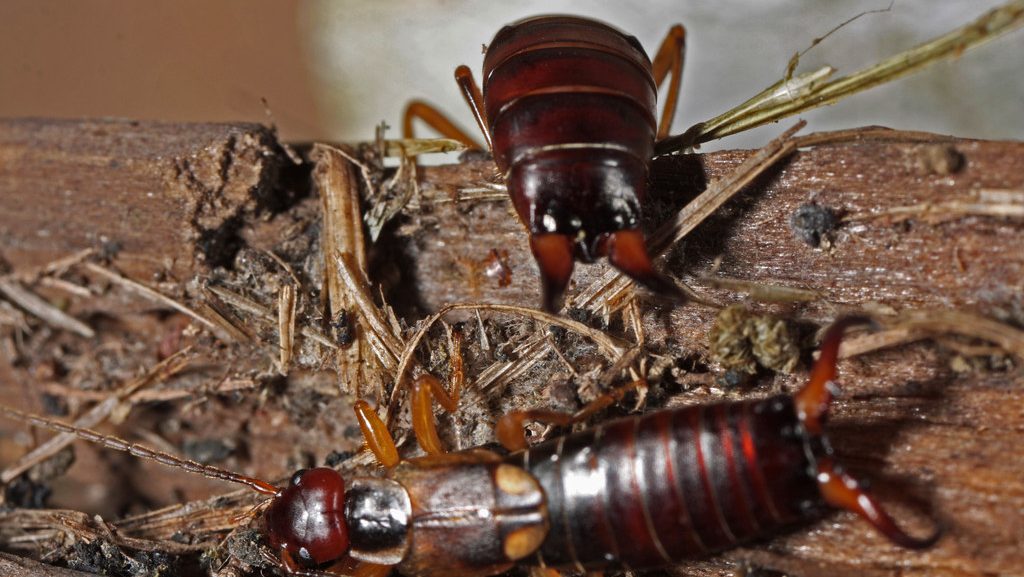 Earwigs are one of the most misunderstood insects due to their intimidating pincers and persistent myths. Many homeowners wonder if these small, dark-colored bugs pose a threat to humans, pets, or plants. This article will clear up misconceptions and provide accurate information on whether earwigs are harmful and how to prevent them from becoming a nuisance in your home or garden.
Concerned about earwigs around your home or garden? Schedule your Free Pest Inspection Today, and our experts will quickly assess and manage any potential issues.
Earwigs are one of the most misunderstood insects due to their intimidating pincers and persistent myths. Many homeowners wonder if these small, dark-colored bugs pose a threat to humans, pets, or plants. This article will clear up misconceptions and provide accurate information on whether earwigs are harmful and how to prevent them from becoming a nuisance in your home or garden.
Concerned about earwigs around your home or garden? Schedule your Free Pest Inspection Today, and our experts will quickly assess and manage any potential issues.
Do Earwigs Bite or Sting?
One of the most common concerns about earwigs is whether they bite or sting. The answer is no—earwigs do not have venom, nor do they sting like bees or wasps. However, they do have forceps-like pincers (cerci) at the end of their abdomen, which they use for defense and mating. Facts About Earwig Pinches Earwigs use their pincers primarily for defense against predators and for capturing prey, not for attacking humans. Here are a few quick facts:- Earwig pinches can cause mild discomfort but are generally not harmful.
- Earwig pincers are not venomous, and their pinch rarely breaks human skin.
- If pinched, washing the affected area with soap and water and applying antiseptic cream usually suffices.
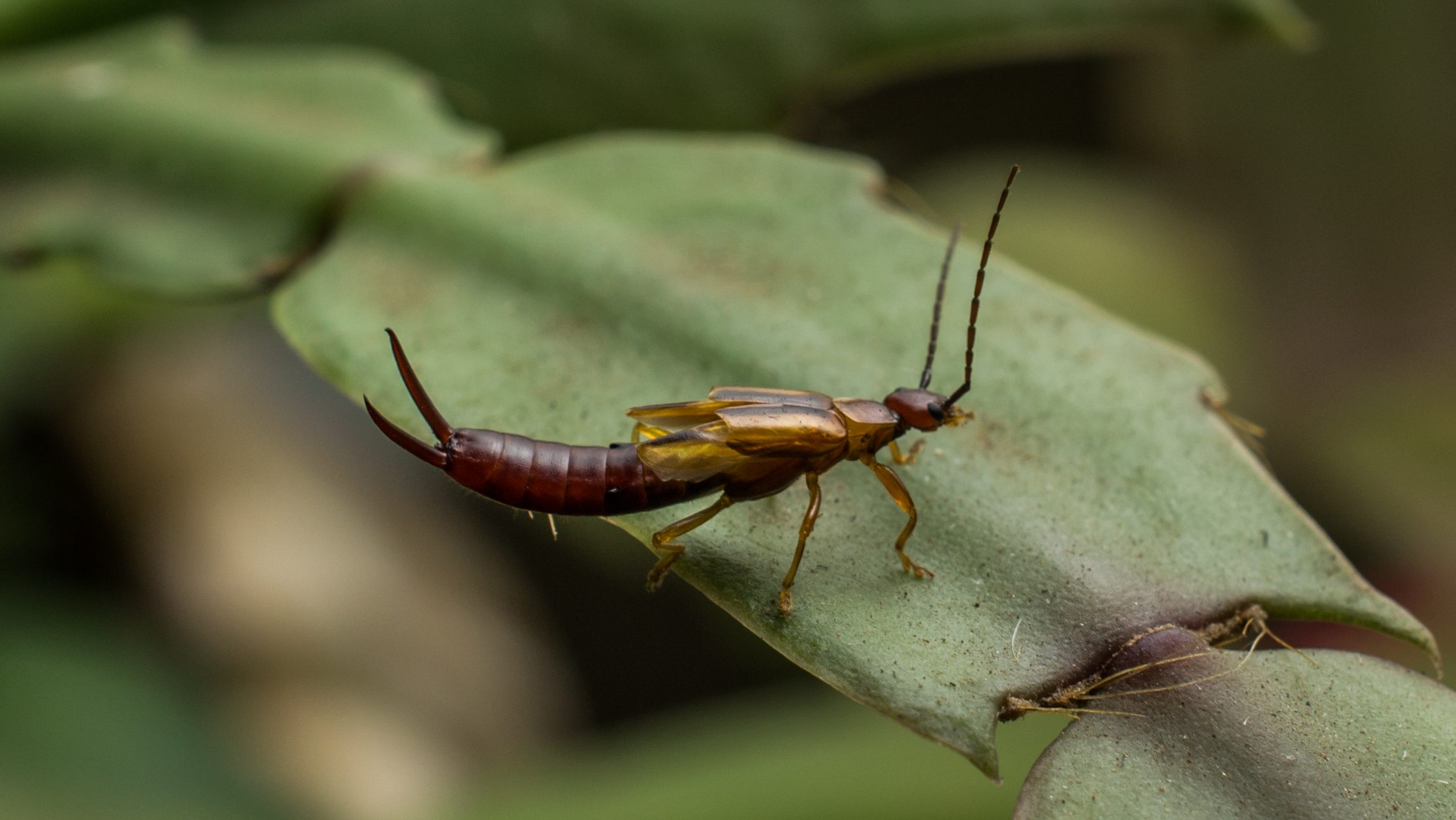

Not getting a solution?
Get your free pest control estimate today!Do Earwigs Crawl Into Human Ears?
A long-standing myth suggests that earwigs crawl into human ears while they sleep, possibly even burrowing into the brain. This is completely false—earwigs do not seek out human ears and have no interest in burrowing into them. Debunking the Earwig Myth There are several misconceptions surrounding earwigs. Here are some facts to clarify common misunderstandings:- The name “earwig” comes from the Old English term ēare-wicga, meaning “ear insect,” but this does not imply any actual affinity for ears.
- There is no scientific evidence that earwigs are attracted specifically to human ears; such incidents are extremely rare and accidental.
- While any small insect can unintentionally enter a human ear, the likelihood of this happening with earwigs is very low, and there is no cause for alarm or undue fear.
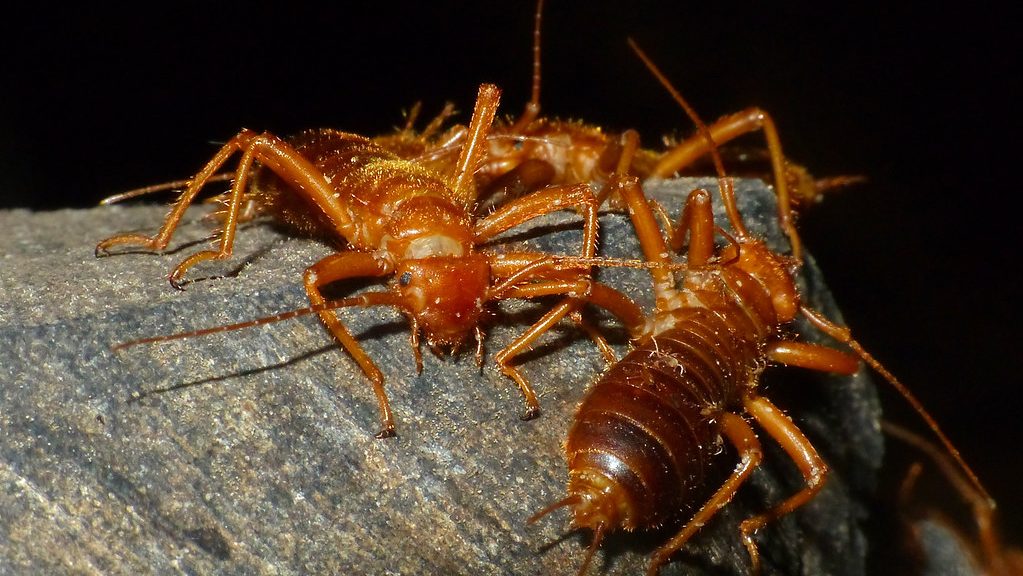
Are Earwigs Harmful to Humans?
Earwigs are not harmful to humans in any significant way. They do not carry diseases, do not infest homes like termites or cockroaches, and are not aggressive.Key Points About Earwigs and Humans
-
Earwigs are nuisance pests rather than harmful invaders.
-
They avoid human interaction and prefer dark, damp areas.
-
A pinch from an earwig is mild and does not cause lasting harm.
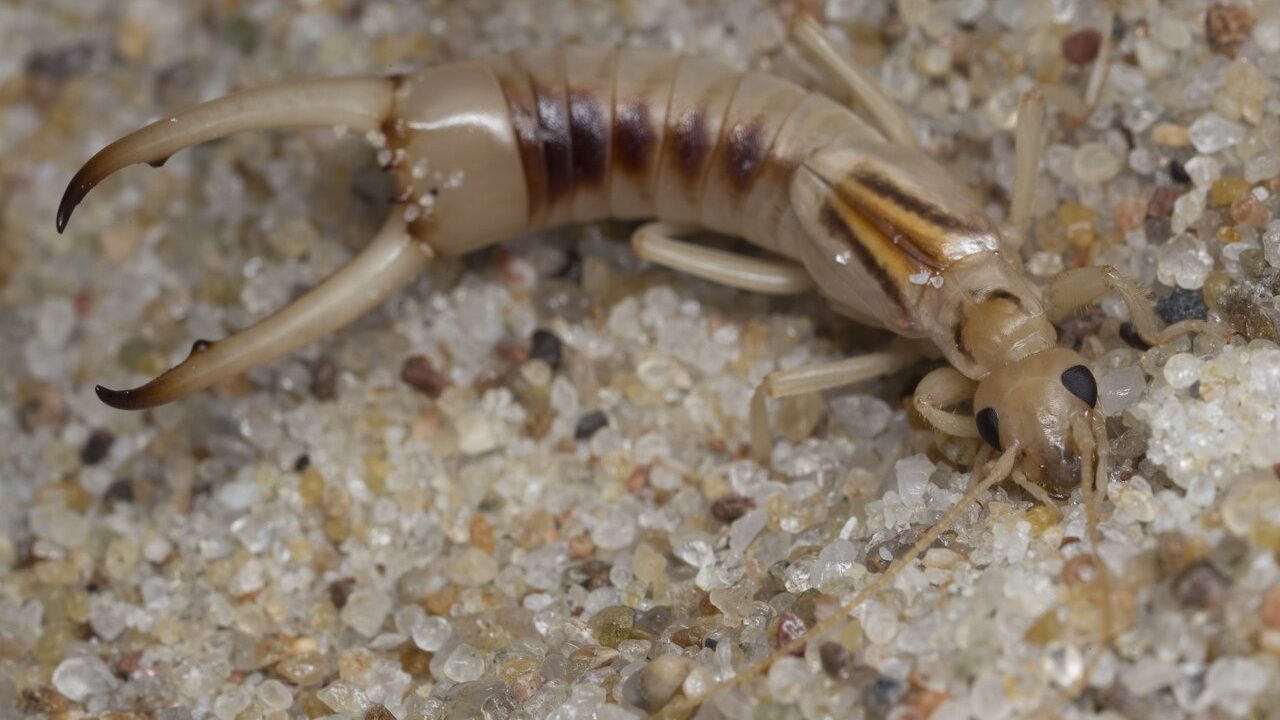
Are Earwigs Dangerous to Pets?
If you have pets, you might worry about whether an earwig could harm them. The good news is that earwigs are not toxic to cats or dogs. Even if a pet accidentally eats an earwig, there is no danger.Earwigs and Pets
-
Earwigs do not produce venom or secrete toxic substances.
-
A pet might get pinched if they try to play with an earwig, but it is not painful.
-
Most pets ignore or avoid earwigs altogether.
Do Earwigs Cause Damage to Homes?
Unlike termites or carpenter ants, earwigs do not cause structural damage to homes. They do not chew wood, drywall, or furniture, and they do not infest food supplies like pantry pests.Where Earwigs Might Be Found Indoors
- Earwigs typically enter homes in search of moist and dark places. Common indoor locations where earwigs are frequently found include:
-
Bathrooms: High humidity, damp towels, and leaking pipes make bathrooms ideal hiding spots for earwigs.
-
Basements: Dark, damp, and poorly ventilated basements often attract earwigs seeking moisture and shelter.
-
Crawl Spaces: These low-traffic, moist areas provide undisturbed environments that earwigs find appealing.
-
Laundry Rooms: Moisture from washers, sinks, and damp clothes creates favorable conditions for earwig activity.
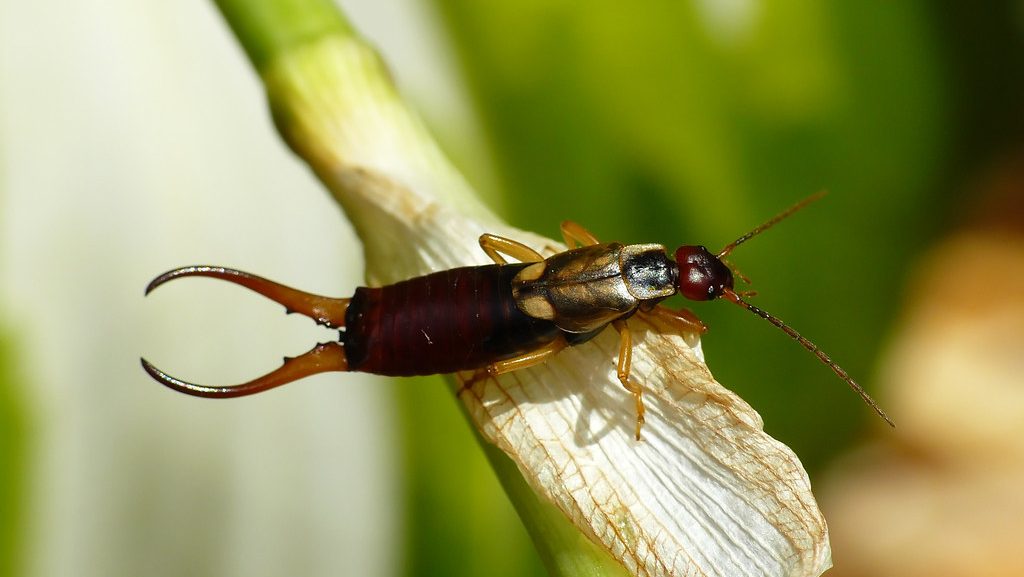
Are Earwigs Harmful to Gardens?
In gardens, earwigs can be both beneficial and problematic depending on their population size and available food sources.Earwigs in the Garden: Benefits
-
Natural Pest Control: Earwigs feed on aphids, mites, and insect eggs, helping reduce populations of harmful garden pests.
-
Organic Matter Breakdown: They consume decaying plant material, assisting in composting and enriching the soil with nutrients.
Earwigs in the Garden: Risks
-
Plant Damage: In large numbers, earwigs may chew irregular holes in leaves, flowers, and soft fruits like strawberries and lettuce.
-
Seedling Harm: They can damage seedlings and tender plants when other food sources are limited or unavailable.
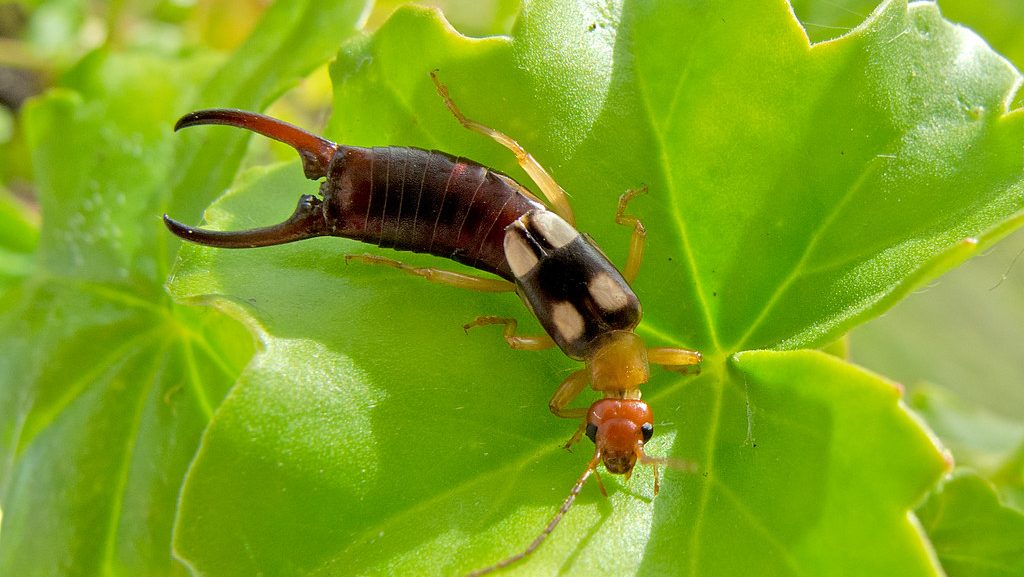
How to Prevent Earwig Infestations
While earwigs do not pose serious risks, they can become a nuisance if they enter homes in large numbers. Here are effective ways to prevent an infestation:Preventing Earwig Infestations
-
Reduce Moisture: Fix leaky pipes and faucets, use dehumidifiers in basements, and avoid overwatering plants near the foundation.
-
Seal Entry Points: Install weather stripping on doors and windows, seal cracks around baseboards and vents, and repair damaged window screens.
-
Remove Hiding Spots Outdoors: Keep mulch, woodpiles, and compost away from your home’s foundation. Trim overgrown vegetation and clear debris.
-
Use Natural or Chemical Control Methods: Set rolled-up damp newspaper traps to capture earwigs overnight. Sprinkle diatomaceous earth around your home’s foundation as a deterrent. Apply a pest control barrier treatment if infestations are severe.
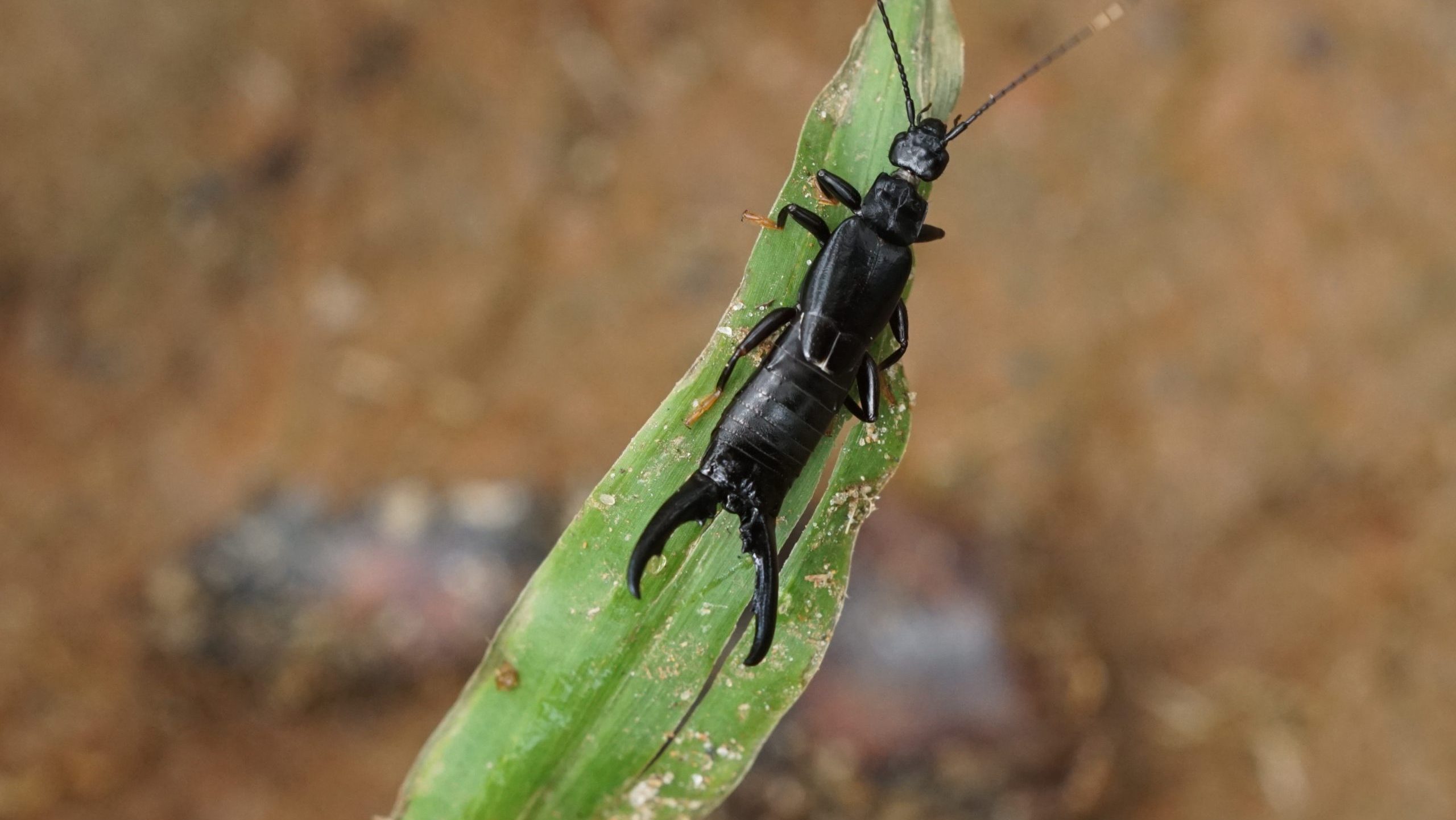 If you feel things have gone out of control, it is advised to Contact Pest Control Professionals. Our team can provide a customized approach to protect your home effectively.
Visit our Species, Earwigs Control, and DIY Guide sections for additional resources on wasps and ways to tackle a wasp infestation. Prevention techniques might not be enough if you’re already dealing with an infestation in your home.
Our pest control professionals provide a customized solution to protect your home effectively.
Get Your Free Pest Inspection Visit.
If you feel things have gone out of control, it is advised to Contact Pest Control Professionals. Our team can provide a customized approach to protect your home effectively.
Visit our Species, Earwigs Control, and DIY Guide sections for additional resources on wasps and ways to tackle a wasp infestation. Prevention techniques might not be enough if you’re already dealing with an infestation in your home.
Our pest control professionals provide a customized solution to protect your home effectively.
Get Your Free Pest Inspection Visit.





